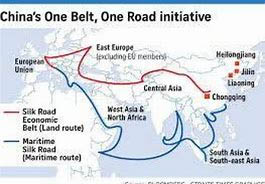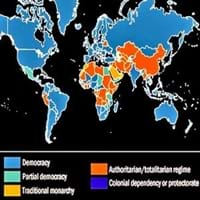Mariner is not an educated economist. Nevertheless, he seeks common sense relationships that make an economy work and he flavors the numbers with human reality. This flavoring is important to regular human beings who, not being career economists, are not bound solely by interpretations of profit, loss and growth.
An economy flows in a long, somewhat circuitous river that starts in rural areas and small businesses everywhere and like the mighty Mississippi River, feeds into larger and larger economies that eventually reflect the generalized circumstances of a national economy. If the economy dries up at any point, the ‘flow’ stops; words like depression and recession prevail; an example is the coal industry in West Virginia. On the other hand, the economy can flow too fast, which is like the flooding of the Mississippi after significant rainfall; the word becomes inflation – a condition where investment values drop, as in a flooded home; a dollar in hand this morning will buy less tomorrow morning. A few insights:
- There are several relatively independent branches of the economic river, e.g., manufacturing, agriculture, investment (stock market, cash savings), services (very large including restaurants, health, transportation, etc.), engineering, and telecommunications. Not a complete list but one gets the idea.
- At the state level, economics is fifty separate branches of the economic river. Each state is responsible for the flow of economics within its borders. Modern economic times have altered this independence as corporations grew and merged and as population has shifted, taking income with it.
- The Internet has had a profound impact on the relationship of a region, with its geographic ties to productivity, versus the imposition of production from elsewhere, even beyond national borders. Two examples are Walmart and Amazon. Local businesses are disappearing very rapidly. Further, the profits from local sales are not recorded in the local region but reflect income at the home office of the corporation.
- What provides current in the economic river is something called Gross Domestic Product (GDP). Typically, one learns about GDP for the nation during news broadcasts. Actually GDP can represent something as small as a neighborhood or small town. GDP consists entirely of how much income is generated within a defined region – including businesses and all residents (AKA jobs).
- Until the late 1980’s when computerization and new US economic policy shifted dramatically, GDP was tied almost exclusively to actual production, that is, stuff that is made or grown. A significant shift in how to generate income was launched during the bountiful years of the nineties: investment became as important as making things. The US went from manufacturing to investment.
Suddenly it was more profitable to ship production overseas where production costs were lower than it was to stay in the US. In the abstract, this new economy opened an era of international GDP, e.g., Trans Pacific Partnership, but at the same time reduced the job security that was had in the days of ‘made in America.’ (One can speculate whether this was the source of Donald’s base) Adding insult to injury, many corporations and capitalist-minded entrepreneurs invested their profits in offshore banks to avoid paying taxes – and to forego investing in the US economy.
Given these insights, that is the state of affairs in the US economy at present. But as the street-wise aphorism says, “The times they are achangin.” Two huge areas of new history are upon the citizenry and upon the responsibilities of government policy and business practices: Cloud technology and climate change.
֎ Cloud Technology[1]. Awesome. Beyond imagination. It is hard to imagine how Cloud technology (CT) will change everything without exception. Will a ‘job’ exist after CT? Will GDP be measurable in any geographic manner? Will any governmental border matter? Google has always had a stated goal: to know everything there is to know in the world. This includes one’s privacy not just in the home but wherever one is, whatever one is doing, and what one had for breakfast. CT will know when one needs new shoes or an oil change – if there is ‘oil’ in future machines. On New Year’s Eve, CT will pick one out of the densest crowd in Times Square in New York City.
CT, coupled with a faster Internet, will not need to be aware of time zones; all data around the world will be instantaneous. Mariner could go on with matters of awe but the big question is, what will CT do to economics – not just in the US but everywhere? Today, investment strategies count on the delay of stock markets opening in a staggering fashion as the world turns. This single strategy will not be available in the world of instant data. International stock exchanges will, in fact, be one giant stock exchange. It will be impossible to keep anything secret – even perhaps what one will name their newborn baby (Has the name been discussed in hearing distance of Alexis? Can one imagine receiving promotions for babywear that already has the unborn baby’s name on it?).
Still, the main issue is jobs. Another aspect of CT is artificial intelligence. Middle management will take a big hit. So will truck drivers, factory workers, fast food employees, and tens of thousands of person-to-person jobs like tax preparers, retail salespeople and primary care physicians. Further, the role of cash will change. Don’t underestimate cryptocurrency; if properly instituted, one will no longer need cash just as, increasingly, one will no longer need storefront shopping.
CT requires a mountain of economic policy change in the federal government. For this reason alone, voters must not be distracted by party shenanigans, racism, incompetent elected officials or plutocratic domination of ‘our’ government. Without starting another post, vote sensibly in 2020.
֎ Climate Change. Naysayers take advantage of the slow pace of Planet Earth compared to the lifespan of a human being. In January, “Where is global warming now?” or “There have been hot Junes as long as I remember” or “Fossil fuels aren’t the cause.” Well, actual, Donald-proof evidence says it is happening; it has been happening; it will accelerate throughout the rest of this century.
For the sake of brevity, mariner will describe just one issue raised by climate change: rising sea level. There are other ramifications like increased volcanic and earthquake occurrences, extensive extinction of life including plants and especially the ocean environment, and severe changes in drought and rainfall across all regions of the planet that will significantly alter agricultural economies and threaten sufficient food to feed a population approaching 11 billion people.
Rising sea level is the most disruptive and expensive phenomenon associated with climate change – even though it is within the capability of humans to manage it. Today there are those who gripe and complain about immigration around 100,000 to 150,000 at one general location in the US. Consider this issue as practice for relocating people, jobs, homes, churches, factories and specialized services for 11.6 million citizens of the larger cities at sea level from New York to New Orleans. Of course it will be a lot easier because the US has about a decade to pull it off . . . mariner jokes.
What makes population migration scary is that these massive relocations of entire societies will happen around the world. London: 8.9 million; The Indian Sundarbans in India: 13 million; Hong Kong: 7.4 million; Tokyo and Yokohama: 11.8 million. And this is just a sampling.
It will be expensive. So expensive that many smaller economies will become bankrupt. Even the US is in danger of economic instability as it helps pay for relocation of new homes, businesses, health services and other important social functions. How about interstates and airports? Must they be relocated and rebuilt? On and on. Sadly, many island nations will be gone.
These are mariner’s thoughts on the US economy. Nevertheless, enjoy a warm, warm summer.
Ancient Mariner
[1] Cloud technology: cloud computing is storing and accessing data and programs over the Internet instead of accessing private computer hard drives. The cloud is just a metaphor for the Internet but is paired with banks of very high speed computers that can share processing. Limits to data storage and retrieval virtually do not exist; response is instantaneous anywhere in the world.

 Guru noted two things:
Guru noted two things: